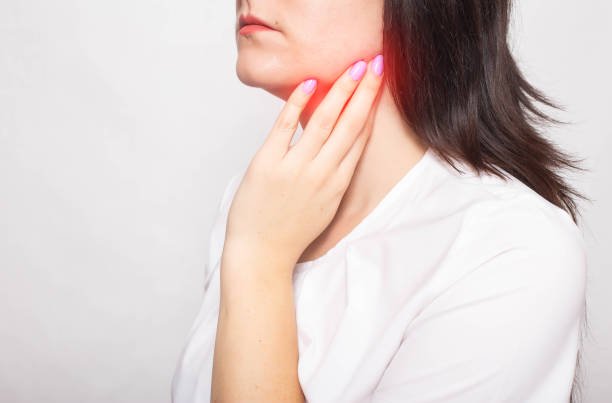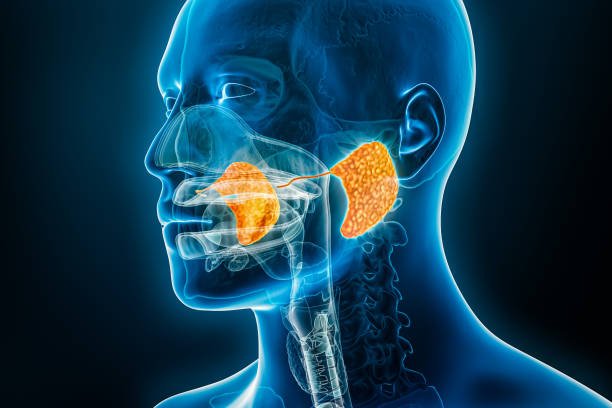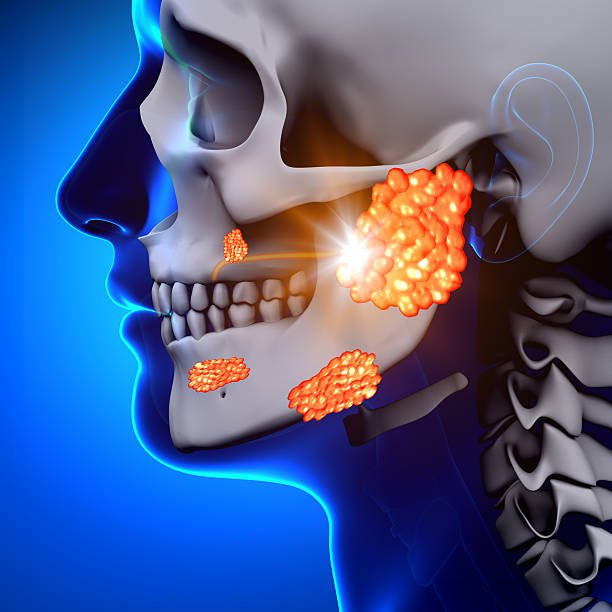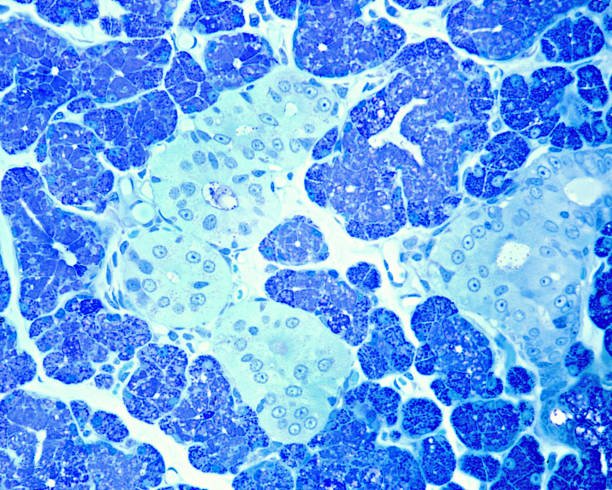The salivary glands are special exocrine glands in the mouth, located in the oral cavity. They produce and secrete saliva, a watery liquid essential for lubrication, digestion, pH balance, and protection.
| Classification of Salivary Glands |
|---|
There are two main categories of salivary glands:
(1) Major Salivary Glands
The majority of saliva in the mouth is produced by these glands. These major glands come in three pairs:
Parotid Glands:
These are the largest salivary glands; they are found in front of the ears and secrete serous, enzyme-rich saliva.Submandibular Glands:
These glands are found under the jawbone; they secrete both serous and mucous saliva mixed together.Sublingual Glands:
These glands are found under the tongue; they secrete mucous saliva, which aids in lubrication for food.
(2) Minor Salivary Glands
These are smaller glands scattered throughout the oral cavity; they secrete mucous saliva that is essential for maintaining oral moisture. They are also found in:
- Lips: In the lower part of the lips.
- Tongue: On the surface of the tongue.
- Cheeks: The buccal mucosa in particular.
- Palate: On both the hard and soft palate.
The salivary glands are very important for the maintenance of oral health and ease of digestion. Other functions of the salivary glands include:
Digestion
Saliva contains enzymes like amylase for carbohydrate breakdown, lipase for fat breakdown, and lysozyme for protein breakdown. Digestion, which commences in the mouth, is aided by these enzymes.Lubrication
Saliva moistens the oral cavity and also lubricates food, which eases swallowing, especially for dry or sticky foods, and also aids speech.Tissue Repair
Saliva contains certain components and compounds that aid growth, wound healing, and tissue repair in the oral cavity.Protection
Antibodies in saliva protect the mouth and teeth from infections by neutralizing bacteria, viruses, and fungi.pH Balance
Acids and bases are neutralized with the help of saliva to prevent tooth decay and erosion.
| Elements of Saliva |
|---|
Water (99-100%): Saliva is a complex fluid primarily made up of water, which aids in lubrication and moistening food.
Enzymes: These enzymes aid in the breakdown of carbohydrates, fats, and proteins such as amylase, lipase, and lysozyme, to commence digestion in the mouth.
Mucins: They cause the viscosity of saliva, which aids in the lubrication of food, such as glycoproteins.
Hormones: Saliva contains small amounts of hormones that aid the body's hormonal balance, such as cortisol and testosterone.
Antibodies: They protect the mouth and teeth from infections.
Waste Products: Small quantities of waste products such as urea and creatinine may be contained in saliva, which the kidneys eliminate from the body.
| Route from Production to the Oral Cavity |
|---|
Salivary Glands: Saliva is produced by the salivary glands in response to stimuli like smell, taste, or sight.
Oral Cavity: Saliva mixes with food in the oral cavity to ease digestion, aid lubrication and protection.
Acinar Cells: The various elements of saliva are produced in the acinar cells of the salivary glands.
Terminal Ducts: The oral cavity receives saliva from the terminal ducts through small openings called papillae.
Ducts: The ducts connect the salivary glands to the oral cavity, through which saliva flows.
Parotitis: A condition of the parotid gland caused by bacterial or viral infections.
Submandibular Gland Infection: Infections are often caused by bacteria or viruses.
Sialolithiasis: A condition that forms stones in the salivary glands, which may eventually block the flow of saliva.
Xerostomia: Results in low saliva production, which can cause dryness of the mouth.
Cysts: Development of fluid-filled sacs in the salivary glands.
Abscesses: Development of pus-filled sacs in the salivary glands.
I will invite;
@imohmitch
@us-andrew
@precious9
Cc,
@helengutier2




https://x.com/Promisezella/status/1875898906414080400?t=kC-KcTKGiOWXTYOkAQgWVA&s=19
Downvoting a post can decrease pending rewards and make it less visible. Common reasons:
Submit
Wow so educative
Keep up
Downvoting a post can decrease pending rewards and make it less visible. Common reasons:
Submit
Thanks dear
Downvoting a post can decrease pending rewards and make it less visible. Common reasons:
Submit